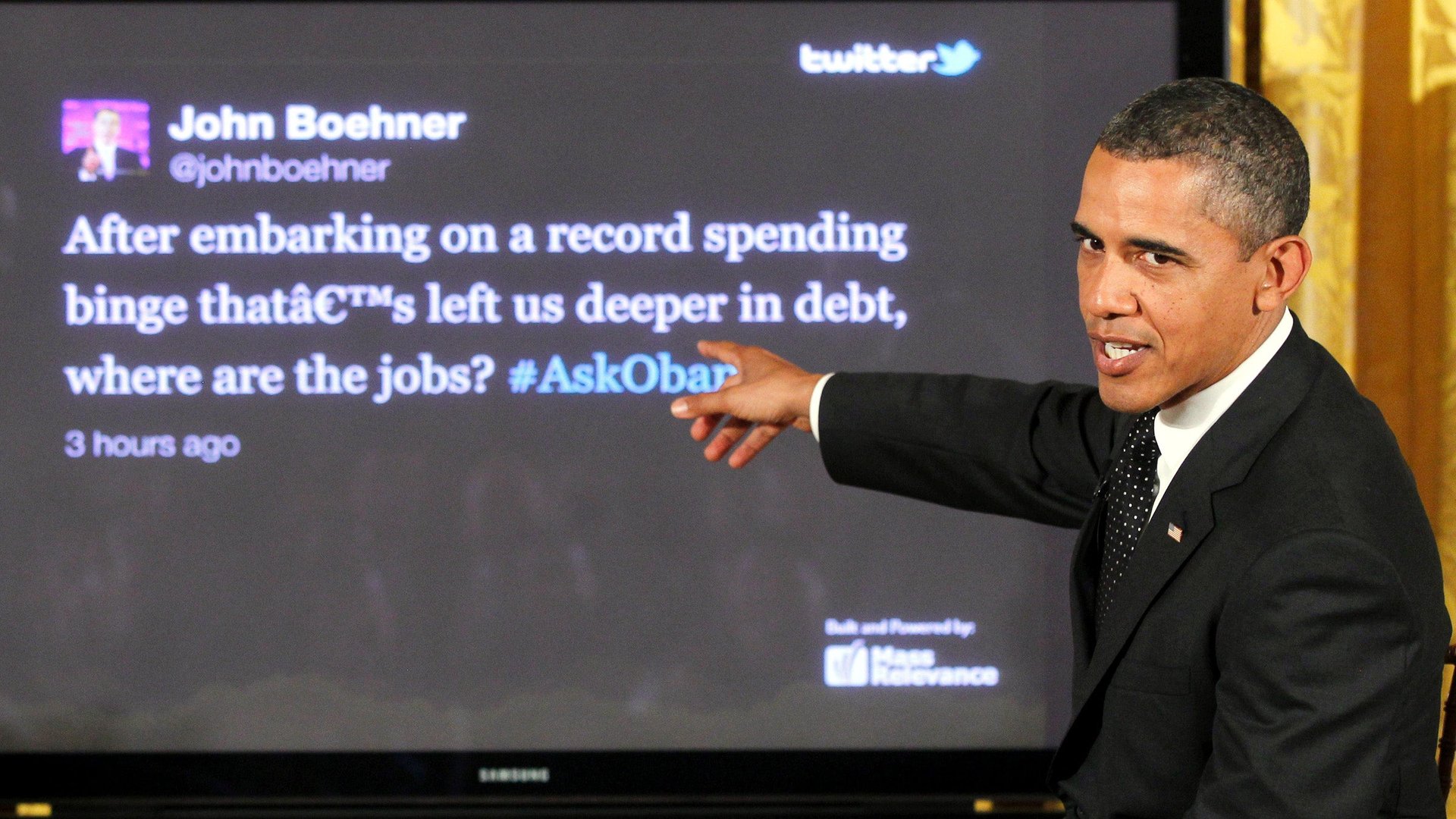Twitter says the key to winning an election is definitely more Tweets
Where will the online battle be waged in the next US presidential election?


Where will the online battle be waged in the next US presidential election?
Probably on Yik Yak—or some service as yet unheralded by the mainstream media. But Twitter, almost a decade old now and a popular political barnstorming ground in the 2012 presidential election, has a vested interest in maintaining the view among politicians and voters that it is still the hot platform.
More than $6.3 billion was spent on the last presidential election, and campaign managers are just starting to draft their plans for the 18-month slog to the White House. The news that Hillary Clinton’s campaign signed a lease for a national headquarters in Brooklyn and triggered a 15-day deadline to announce her candidacy is one more starting bell for any company seeking to be a line-item on a political operative’s budget. Texas senator Ted Cruz announced his candidacy March 23, Florida senator Marco Rubio is expected to announce his tomorrow.
Peter Greenberger, a former campaign manager who went on to lead Twitter’s forays into political advertising, used to be in charge of convincing political operatives that money spent on Twitter is money well spent (video). Greenberger has since changed roles to focus on Twitter’s growth in Russia and China. But he’s still pointing out how politicians can use the platform to their benefit.
Here he’s referring to putative Republican candidate Jeb Bush’s tweet today (April 6) about the revelation that the former Florida governor incorrectly listed his race as “Hispanic” on a voter registration card, and comparing Bush’s response (which included a retweet, or RT, of a tweet sent by one of his children) to a flap involving Democratic senator Elizabeth Warren’s real-but-distant Native American heritage.
Whether a tweet will be enough for Bush to smooth things over remains to be seen. So, too, is Twitter’s ability to increase its share of the political advertising market. Old media still dominates political advertising. The two leading candidates in 2012, Barack Obama and Mitt Romney, spent a combined $256 million on television ads and just $78 million on digital ads.
But political operatives say they will spend comparatively more online during this election cycle. The only question is how much—and which platform.